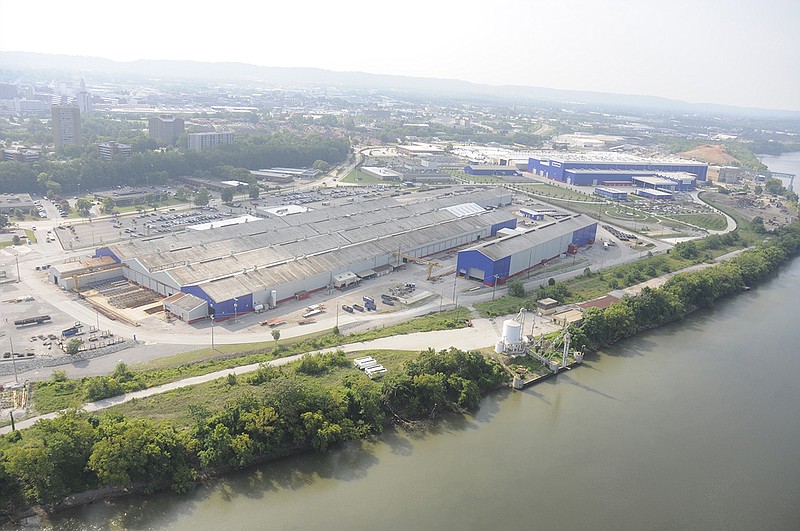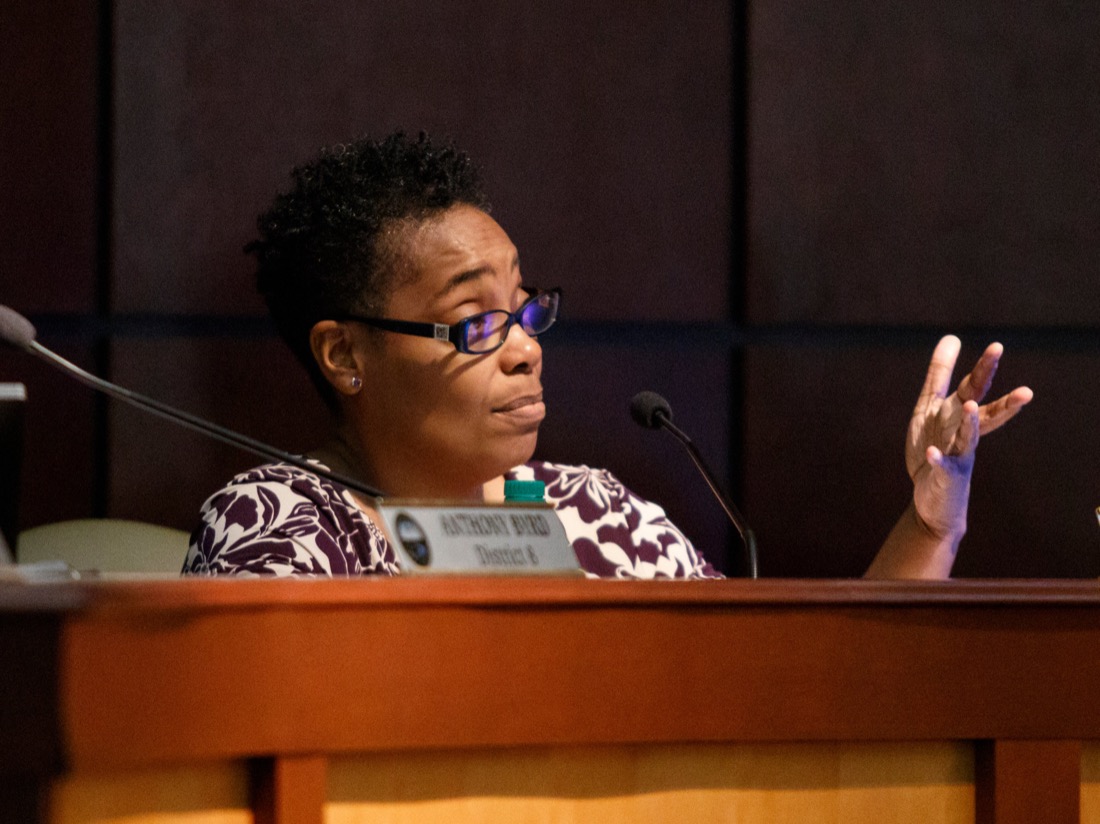From facades and character to traffic and school capacity, local governments are wrestling with the direction of development in Hamilton County.
The Hamilton County Commission and Chattanooga City Council each spent their regular business meetings this week discussing controversial rezonings, as the area continues to grapple with responsible growth.
At an overcrowded, three-hour agenda session Wednesday morning, commissioners, staff, those in opposition and supporters debated the benefits and drawbacks of rezoning for a proposed 228-home development off of Ooltewah-Ringgold Road.
The development in question would include 108 single-family houses and 120 villas designed to attract retirees. The potential uptick in traffic and school-aged residents highlighted a divide on the commission and in the crowd over how much growth is healthy for the area.
"I am not against growth. It's what I do for a living," District 7 Commissioner Sabrena Smedley, a real estate agent, said after more than two heated hours trying to fight or postpone the rezoning. "My concern is with it all happening on a 2-mile stretch of Ooltewah-Ringgold Road."
The tension between commissioners Wednesday was the result of a continued conversation about growth, specifically in District 7.
Smedley continued her recent streak of caution with development and rezoning in the Ooltewah area, citing concerns about density, traffic and school capacity in her booming district.
"There are a thousand lots in this area being constructed on right now," Smedley said, warning her colleagues about what more people in the area could do to already crowded schools and streets. "My concern is knowing there are 1,000 lots still in the works, and knowing that there's a middle school going to open up and house about 1,100 or 1,200 students and then there's also going to be faculty to be hired at that school, and knowing the department of education pretty much plans to make the existing school a mega high school ... I'm thinking about what will be happening in three to five years ... we need to take a breath."
While it is Smedley's district, some of her colleagues on the commission are concerned that denying economic developments will impede those who already live in the county and worsen their financial burden.
"The traffic studies indicate that we need improvements and yeah, there's going to be periods of congestion ... but nothing that's any different than most any other area," District 8 Commissioner Tim Boyd said after a 20-minute presentation on why the rezoning should be approved. "We've got periods of congestion all over the county, but that doesn't mean development should be stopped. We can't stop the growth. We can't lose affordable housing projects to surrounding counties and then expect to not vote for tax increases. We're going to have continued demands."
Regional Planning Agency Director John Bridger said that while the area is not at capacity, "I am not an engineer. I rely on engineers to determine what's at capacity. That's why we as a staff want to see a traffic impact study done."
Bridger referenced a traffic impact study of the affected area that will be completed some time in January.
"I would say this is my observation. Is there growth? Yes. Based on information that I have available, I would not say that [development in the area] is at a place where you should say you can't develop. I do agree that it's at a point where we need to think more cautiously."
Smedley asked developer Billy McCoy if he would be willing to wait and have the case considered after the traffic study was complete, but McCoy said he would "rather not" because he and the property seller are on a timeline.
Without an obvious consensus on the commission, the rezoning of the development will be voted on next Wednesday.
Maintaining character
The night before the commission meeting, their counterparts on the city council sat through a two-hour meeting packed with controversial rezoning cases that drew a similar crowd of concerned neighbors.
While the council gave initial approval to a mixed-use rezoning for a massive development at the site of the former Alstom manufacturing site, which developer Victor Dover excitedly introduced as a "transformative project" for the city, other rezoning requests in the city proved more controversial.
One case in District 2, near Lupton City, received pushback from neighbors worried about the facades and density of the proposed development matching the character of the surrounding neighborhood.
"The character of Lupton City, the cottage-style homes with the homes that Chris and his investors are proposing, it was almost like, you know, it's the pencil stick homes and it's just too dense and too close," resident Patti Mitchell said, opposing the developer's current site plan that would include 23 houses on less than 3 acres.
Ultimately, the council allowed developer Chris Anderson to pull his application and go "back to the drawing board" to come up with a plan better suited for the area.
Another zoning issue at the council meeting dealt with the character of an area, rather than buildings, when an application by store owner Sean Daniels to sell beer at Menlo Park Neighborhood Grocery Store on Ridgeside Road caused a rift between neighbors.
Several neighbors showed up to support Daniels, who was seeking rezoning in order to sell beer for off-site consumption out of his store. Others pleaded with council members to deny the rezoning on the grounds that selling alcohol in the neighborhood might promote crime or consumption by minors, due to its proximity to the Chambliss Center for Children that is located about 600 feet away.
Ultimately, the council voted 5-4 to support the rezoning on first reading.
"This decision really was a hard decision, but I try to be fair to everybody," District 9 Councilwoman Demetrus Coonrod said before voting in favor of the rezoning, citing primarily positive community feedback ahead of the meeting. "We govern zoning, this is a zoning matter. The beer board handles if you're going to get a beer [permit] or any of those things."
Contact Sarah Grace Taylor at staylor@timesfreepress.com or 423-757-6416. Follow her on Twitter @sarahgtaylor.




